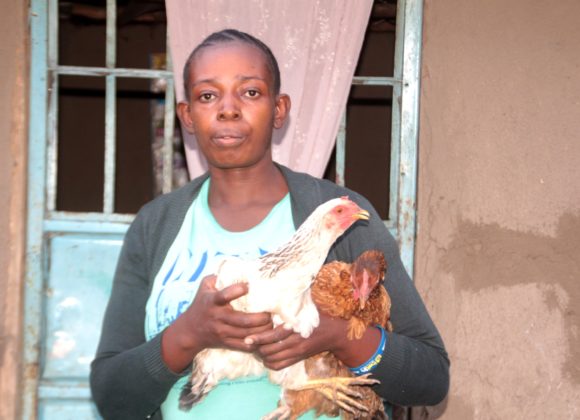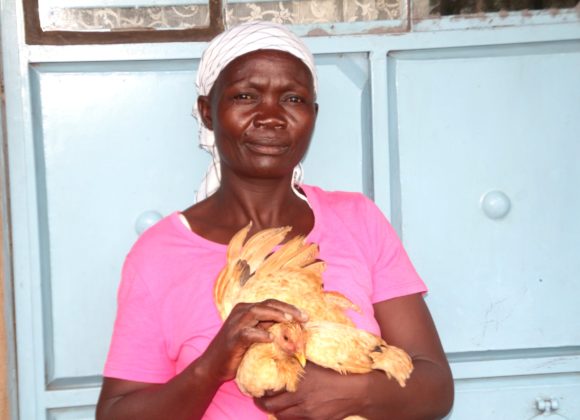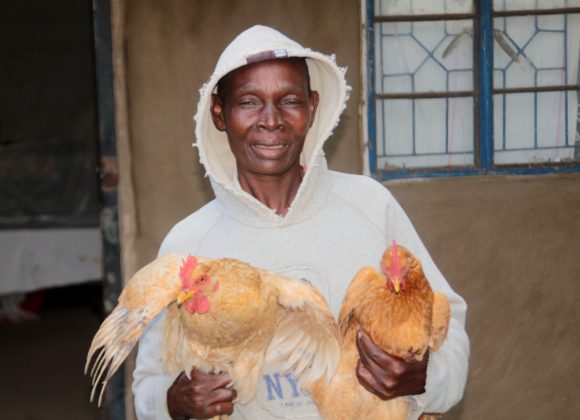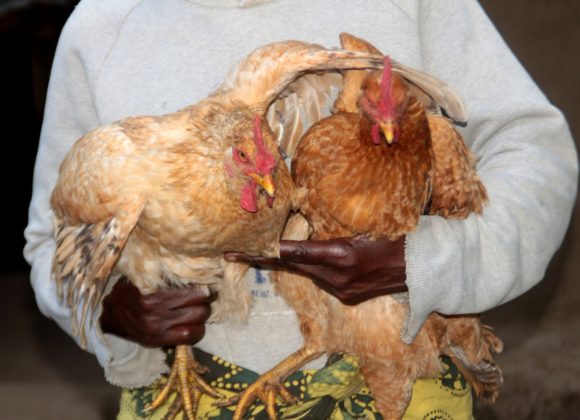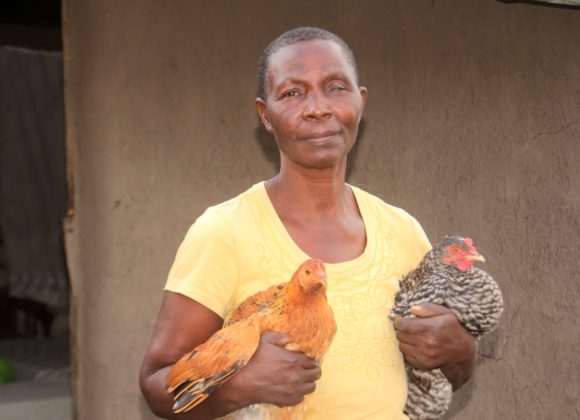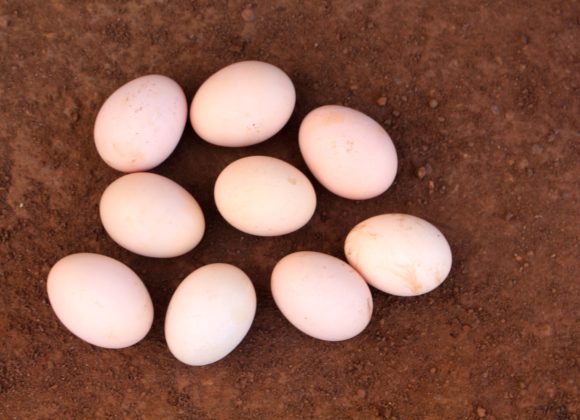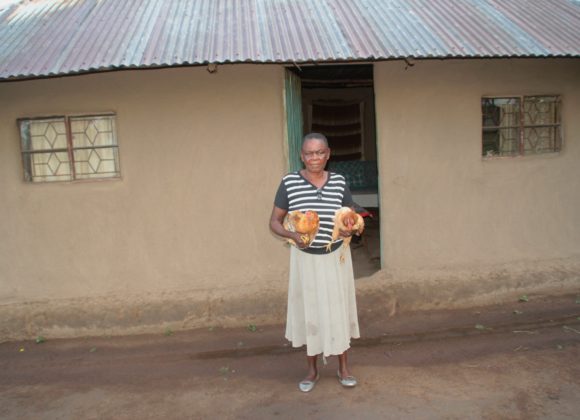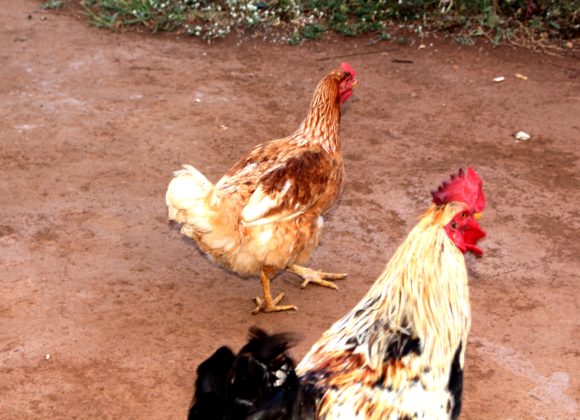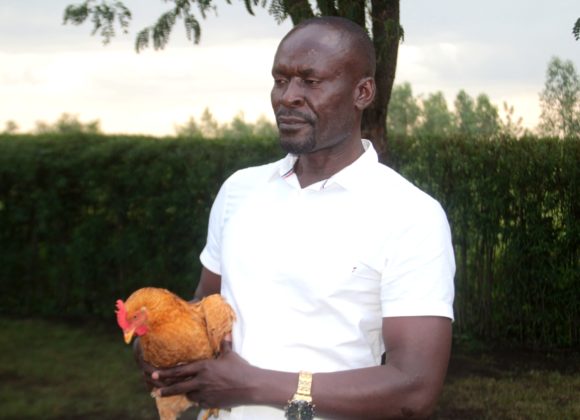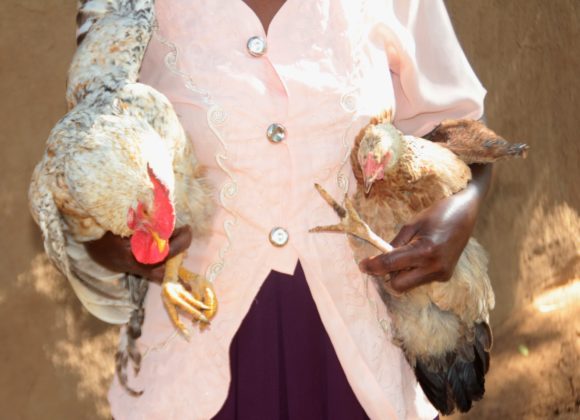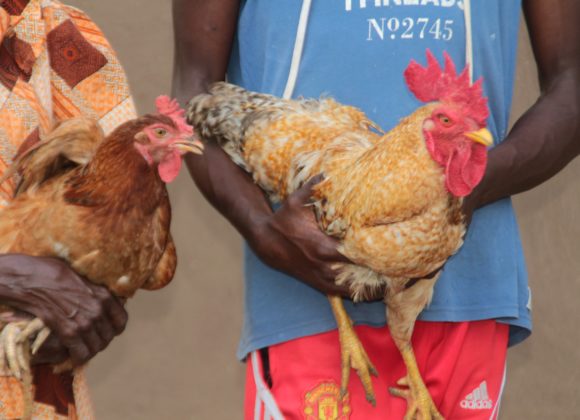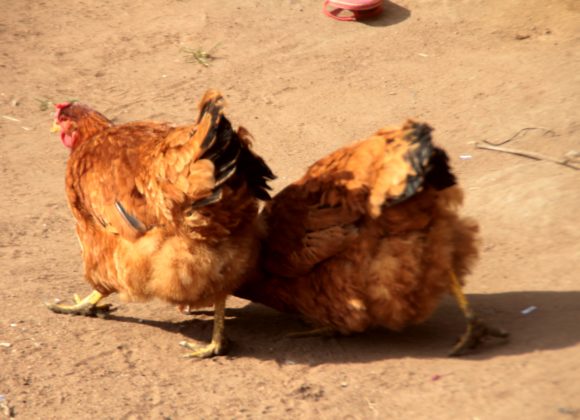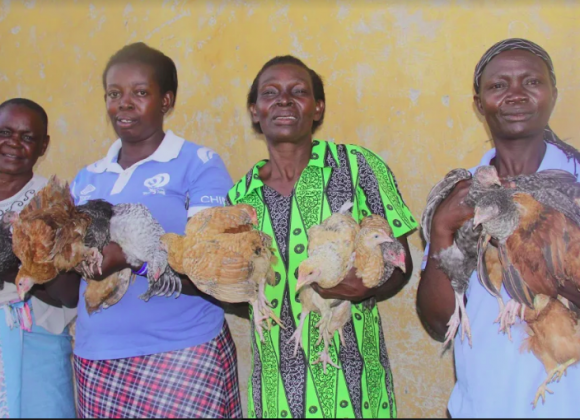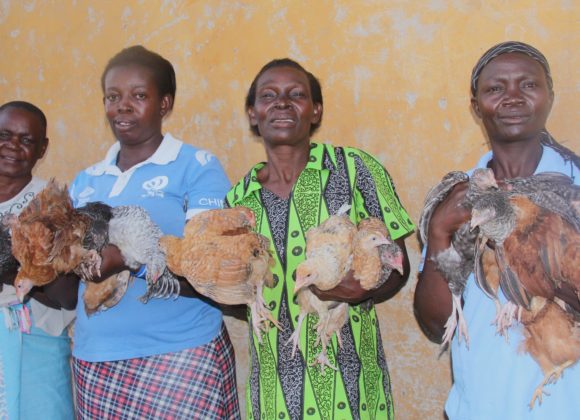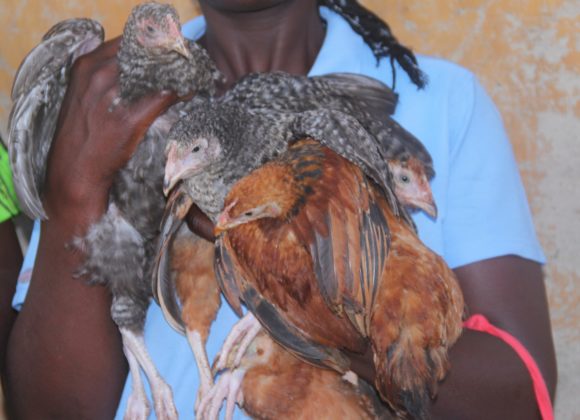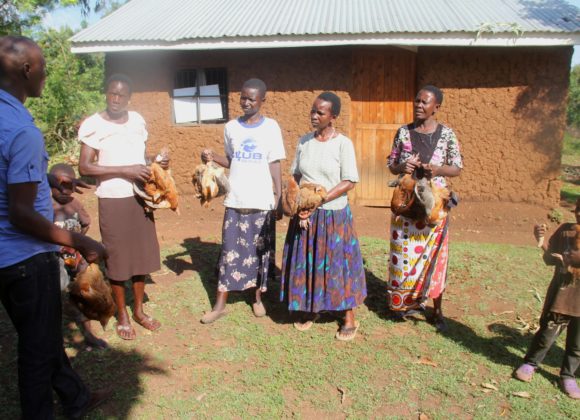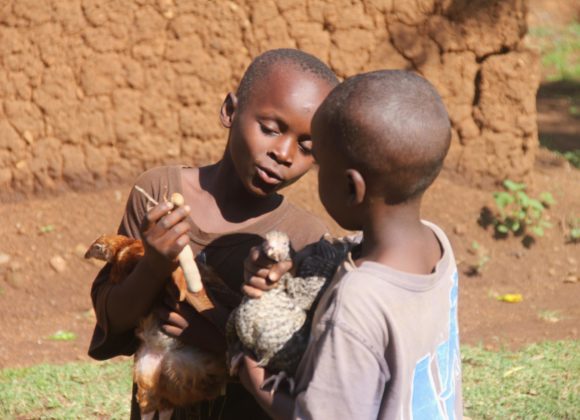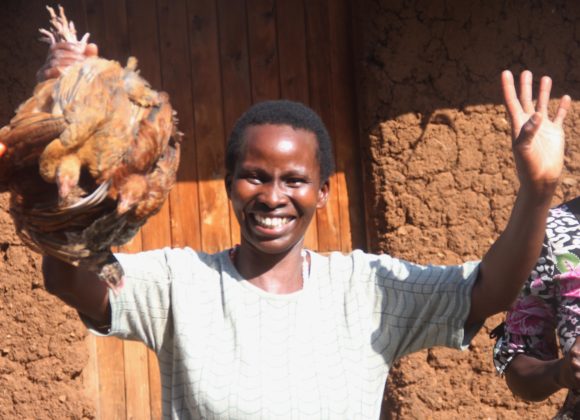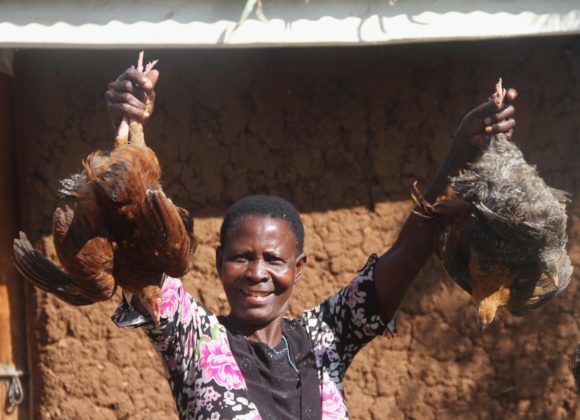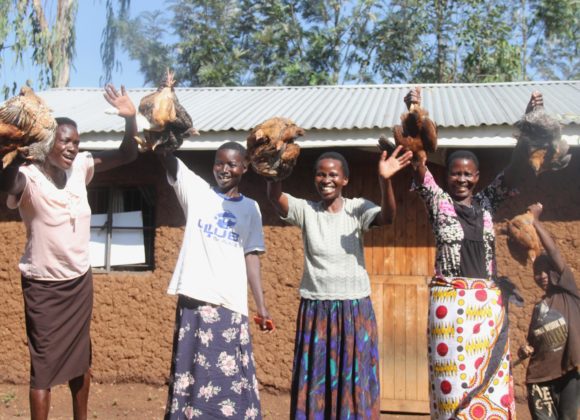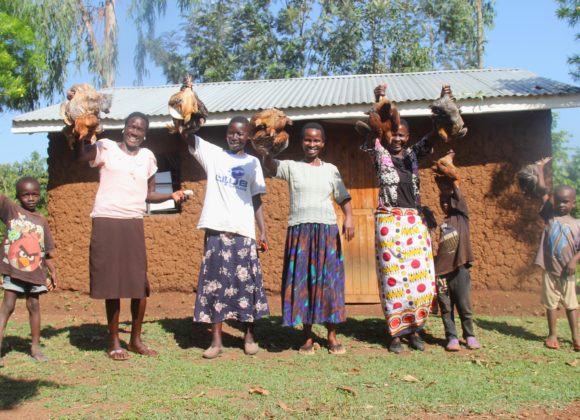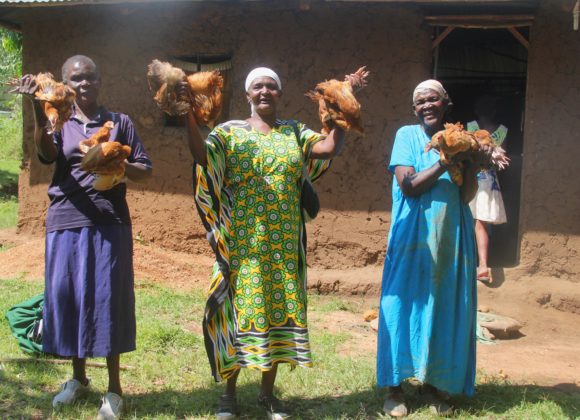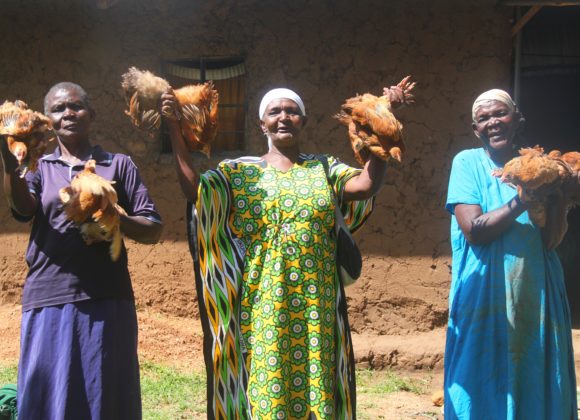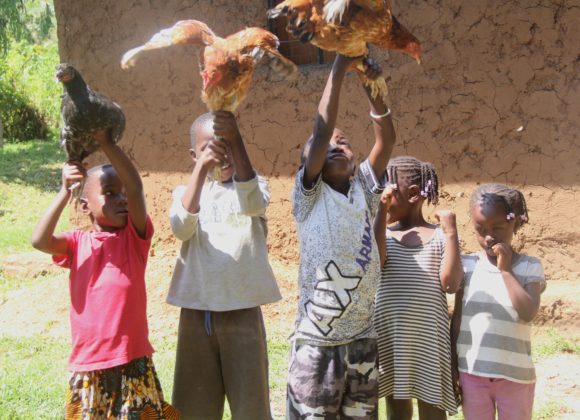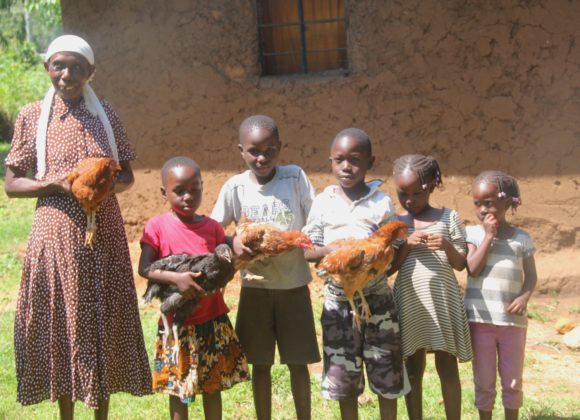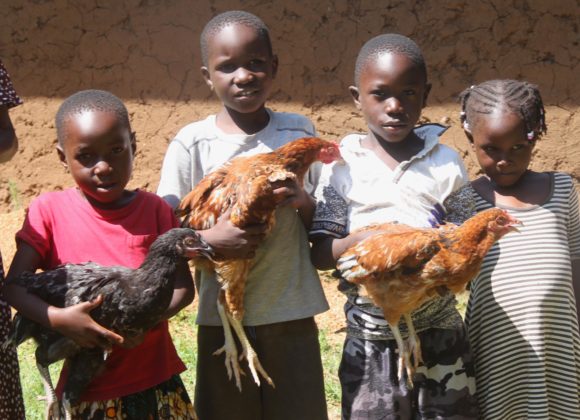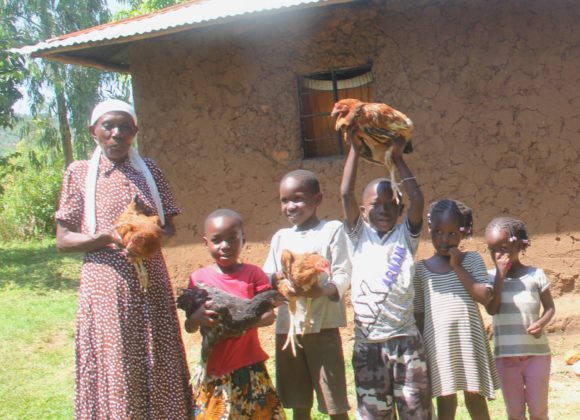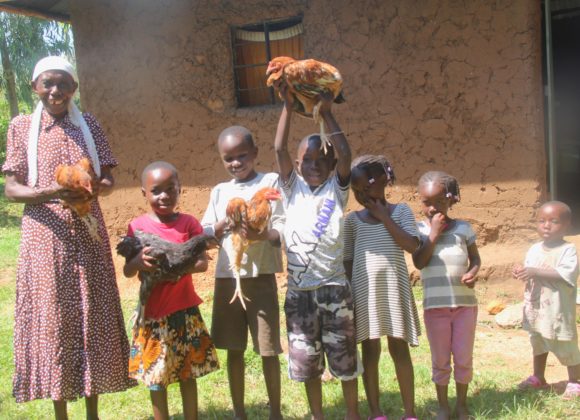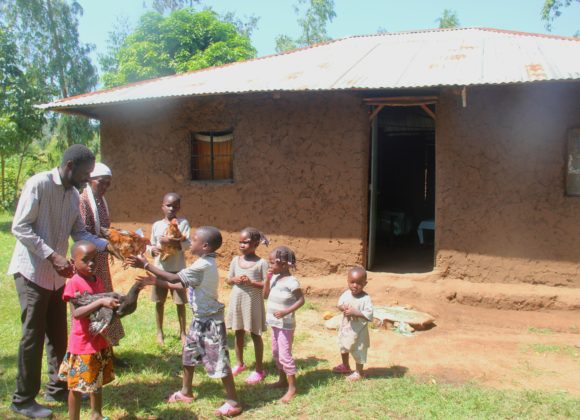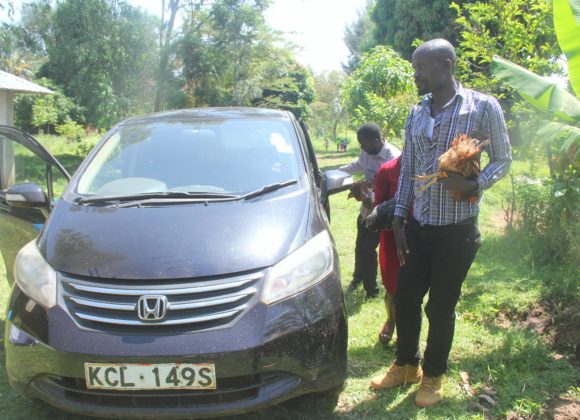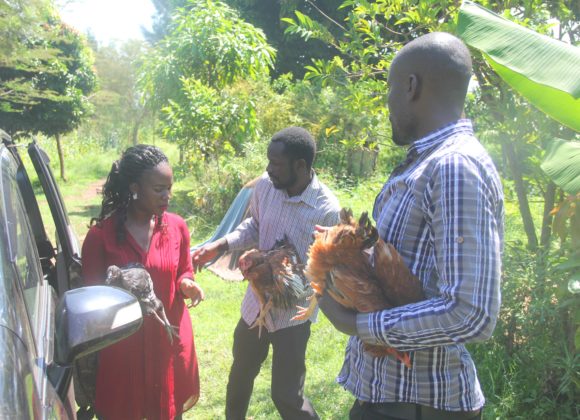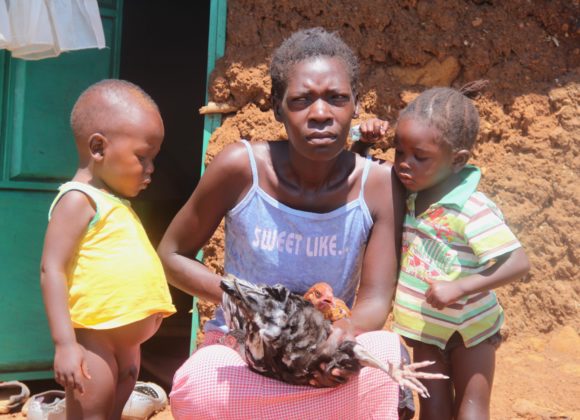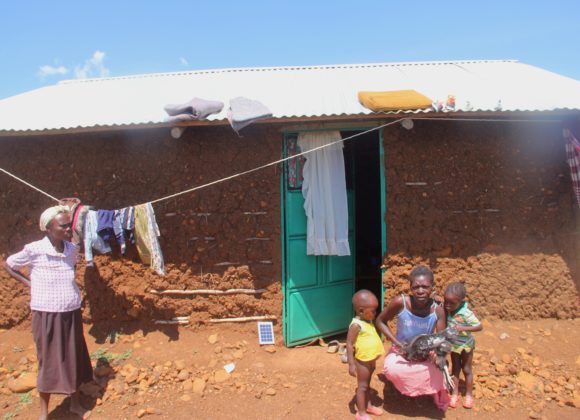Kuza program was started by the President of the Foundation Mercy Achieng Jennert to improve the household income of poor women through donation of Kuroiler breed of chicken. Kuza Kuku are Kiswahili words meaning take care of chicken. Kuroiler chickens have multi-colored plumage, but the characteristic and distinctive pattern is their speckled white and grey feathers. This speckled plumage acts as a perfect camouflage from predators, thus, ensuring its survival under the backyard production systems common in rural settings where no protection or supervision is offered
The Kuroilers mature faster as compared to the other breeds. The hens weigh 2kg and the cocks 3kg by three months and 3.5kg and 4.5kg respectively by eight months.
They are also efficient converters of food to body masses as compared to other breeds, which take time to grow.
The Kuroiler egg is also much bigger than the others, a performance that is attributed to the bird’s genes.
The Kuroiler breed adapts well to free-range rearing and is a vicious scavenger. They love eating small plants and insects and also feed on house leftovers.
Practicing the free-range system will help these poor women cut the cost of production since fewer resources are needed to take care of these kroiler chicken.
Kuza Kuku Livelihood Support Program seeks to alleviate poverty among poor households headed by widows. These women literally kill themselves to survive because of the retrogressive and abusive cultural beliefs and practices they are subjected to, these have forced the poor widows to bear the brunt of HIV/AIDS and even unplanned pregnancy..Their survival depends of the goodwill of relatives and friends, their children mostly go without food and are constantly at home because of lack of school fees
Women have remained an economically disenfranchised lot in Kenya for far too long. The inability of most of them to own property, especially land and housing, has continued to perpetuate their economic dependence on men.
Consequently, women become extremely vulnerable upon a husband’s death, with the lives of many being turned into a living hell, not just by their in-laws but also the society in general.
Because theirs is a dog’s life, widows see it all. Some are blamed for the demise of their husbands, especially when the deaths are mysterious or as a result of suicide or murder. Others get disowned and chased away by in-laws upon the death of their husbands
Needless to mention those who get embroiled in nasty court battles over property or those who get forced to participate in backward cultural practices like widow cleansing and wife inheritance. Others have to engage themselves in high-risk work to make ends meet, following abandonment by in-laws.
Need we state that some have to constantly fight stigma from society, especially from their married counterparts who treat them with suspicion that they can steal their husbands?
Never mind, this is happening in a country where, on paper, the laws recognize women’s rights to own and inherit property; but in practice, many widows are chased away from their land, and access to justice is hard to obtain.



